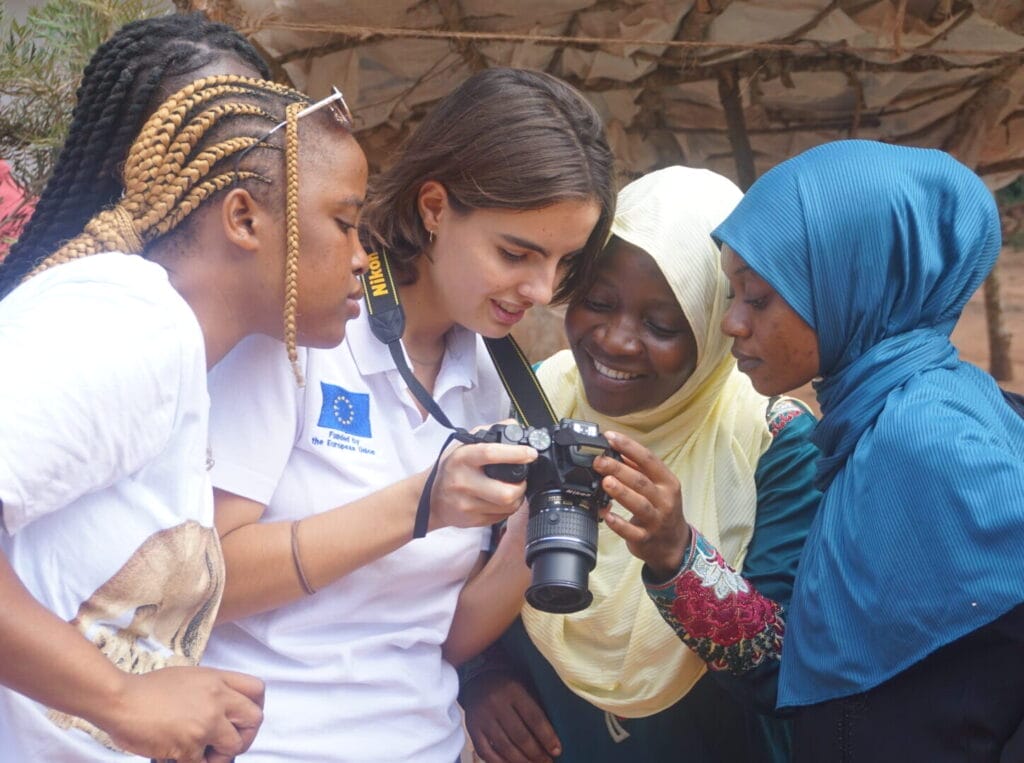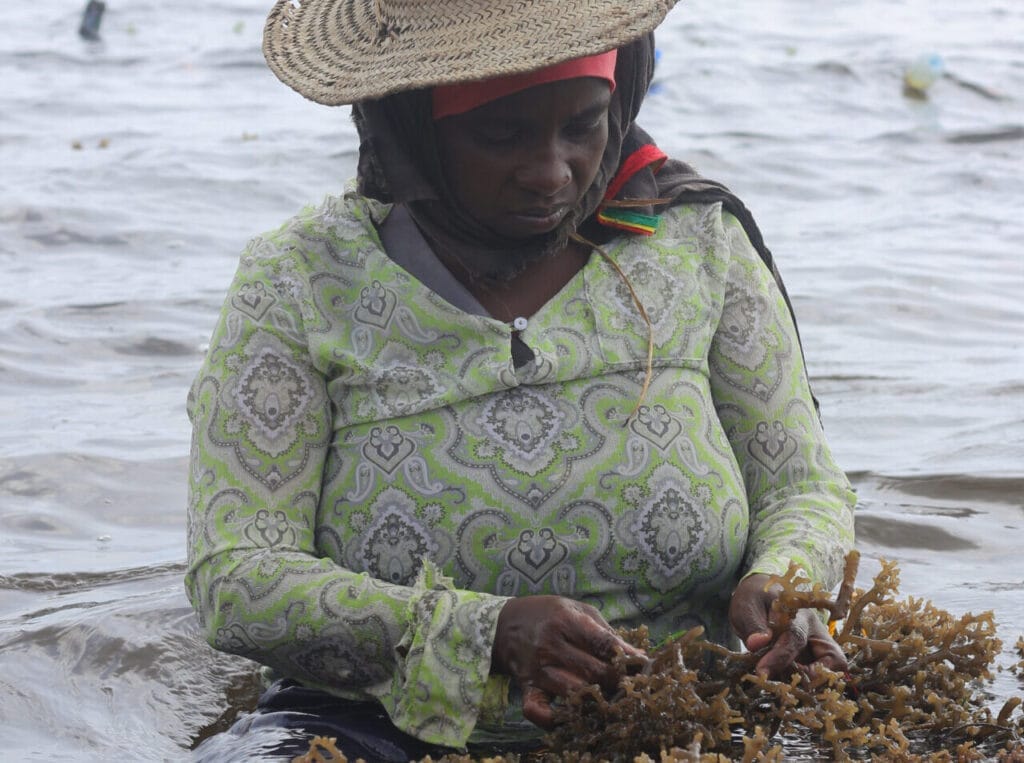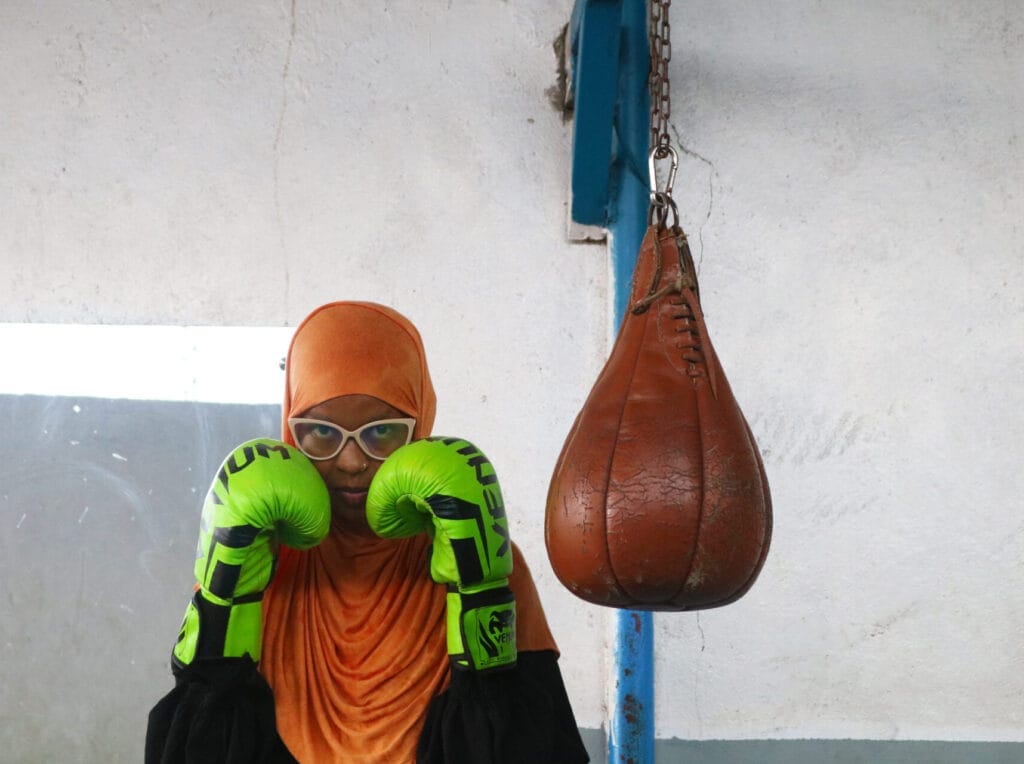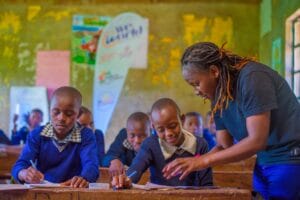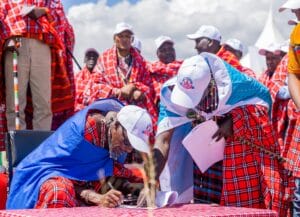
For more than 13 years, WeWorld has been active in Kenya, Tanzania and Mozambique. Starting in March 2023, we are promoting the Kujenga Amani Pamoja - Let's Build Peace Together project, co-funded by the European Union, in the Swahili Coast, a coastal area shared by Kenya, Tanzania and Mozambique: territories that share a strong socio-economic and political instability, which in turn leads to the marginalisation of the most fragile groups. Widespread, as a consequence, is unemployment: a frequent cause of extremism and radicalisation. To tackle this crisis, WeWorld is promoting an intervention focused on civil society with the aim of making young people aware of ongoing conflicts and bringing them closer to the idea of peace. Through the use of media and the arts, women and men are made participants in the fight against tension and discrimination, becoming promoters of peace, social justice and gender equality.
PHOTOVOICE: the participative activity for young female photographers
Part of the Kujenga Amani Pamoja project is PHOTOVOICE, carried out in Kenya, Tanzania and Mozambique from February to May 2024. It was a participative activity involving 32 young women aged between 18 and 35, coordinated by the French-Italian photographer Myriam Meloni and three local professional photographers. They were: Halima Gongo, a multimedia journalist from Kwale County in Kenya, Gertrude Malizeni, a filmmaker and multidisciplinary artist from Dar Es Saalam, and Nelsa Guambe, an artist from Inhambane Province in Mozambique. Why an all-women's workshop? Societies in Kenya, Tanzania and Mozambique are generally patriarchal, with a clear distinction between the roles of men and women. Women are considered responsible for maintaining the home and caring for children, and generally enjoy fewer privileges in society than men. The project therefore adopted an inclusive approach so that women would no longer be victims of discrimination but would become active subjects and spokespeople of their own experience. Through this project, the protagonists were able to share their testimonies and exchange their points of view with each other. Each with her own perspective, these young women tried to represent their idea of peace and conflict through photography.
The workshop began with an initial training course focusing on the image: starting with knowledge about the technical use of the camera, the participants were able to gain greater awareness of the communicative power of photography. This led to the practical part: the shoot. Each time, they tried to understand the possible causes of conflict and crisis within the community and bring them to light through photography.
Kenya
In the community of Kwale, Kenya, gender stereotypes were identified as the main obstacle to emancipation, development and peace. Thus, through photography, participants were given the opportunity to take the lead and reinterpret activities, usually carried out by men, with a female gaze. They thus had the opportunity to challenge conventions and gender stereotypes that limit the possibilities of the female community. Examples include the informal spaces known as maskanis, usually frequented by men and boys, or the bodabodas, motorbikes that play a crucial role in the transport service. During the activities, the participants appropriated these spaces and means, overturning a deep-rooted patriarchal logic. Furthermore, the photographer Myriam Meloni used a typical Swahili Coast garment in the workshops: the so-called kanga, which plays a social role within the community as it has the function of conveying an educational and/or social message. In this case, by covering the faces of the subjects with the kanga, the photographic creation succeeded in conveying a message of female empowerment, redemption and hope to the entire community.
Tanzania
In Tanzania, especially in coastal villages, seaweed cultivation is mainly managed by women. Therefore, this work has become a key tool for women's empowerment as it gives them the opportunity to improve both their economic status and their social role within the community. However, despite the fact that this work brings numerous benefits to the community, it continues to be undervalued and underpaid: the importance of this activity is not recognised, and this leads to perpetual conflict between female seaweed farmers and fishermen, who work in the same areas. In order to break this conflictual routine, the participants wanted to focus their photographic project on seaweed cultivation, focusing on the most at-risk areas such as Mkinga. Through photography, they wanted to denounce the lack of recognition of this work and at the same time emphasise the many benefits associated with it. In addition, as in Kenya, the workshops in Tanzania also considered typical local accessories, namely vipepeo: fans decorated with messages, colours and symbols of peace.
Mozambique
Finally, in Mozambique, PHOTOVOICE was carried out in the community of Chiúre, in the province of Cabo Delgado. The participants worked within their communities, specifically in Nankumi, Marrocane, Najua, Mekulane, Marrupa and Ocua, where they focused their attention on different forms of peace: the photos captured moments related to education, health, initiation rites, motherhood and different forms of culture. From these representations, collages were then created, in which moments of peace were juxtaposed with episodes of violence. These creations immediately reveal the impact of gender discrimination on women's lives: domestic violence, forced marriage and early motherhood are, in fact, still recurrent and widespread phenomena in these areas. In addition to this precarious condition, the conflict in Cabo Delgado has left the female community in particular in a vulnerable and exposed position. Thus, thanks to PHOTOVOICE's activities, the participants had the opportunity to denounce this crisis and lay the foundations for building a more promising future.
Photo exhibitions in the 3 countries
In view of the International Day of Peace on 21 September, three exhibitions will be organised in the countries hosting this project:
- In Mozambique, the exhibition will be hosted by the Yopipila Center in Maringanha in the Pemba 3032 area;
- In Kenya, the event will be held at the Mvindeni Social Hall, Kwale County.
- In Tanzania, the exhibition will take place at the Urithi Heritage Museum in the city of Tanga;
Discussion panels on peace issues involving the young photographers, communities and local authorities will also be organised at each event. In addition, the PHOTOVOICE activity gave birth to ‘PHOTOVOICE: Women see many things’: a poster-brochure telling about all the activity carried out over the past months. You can find it here as an attachment.


